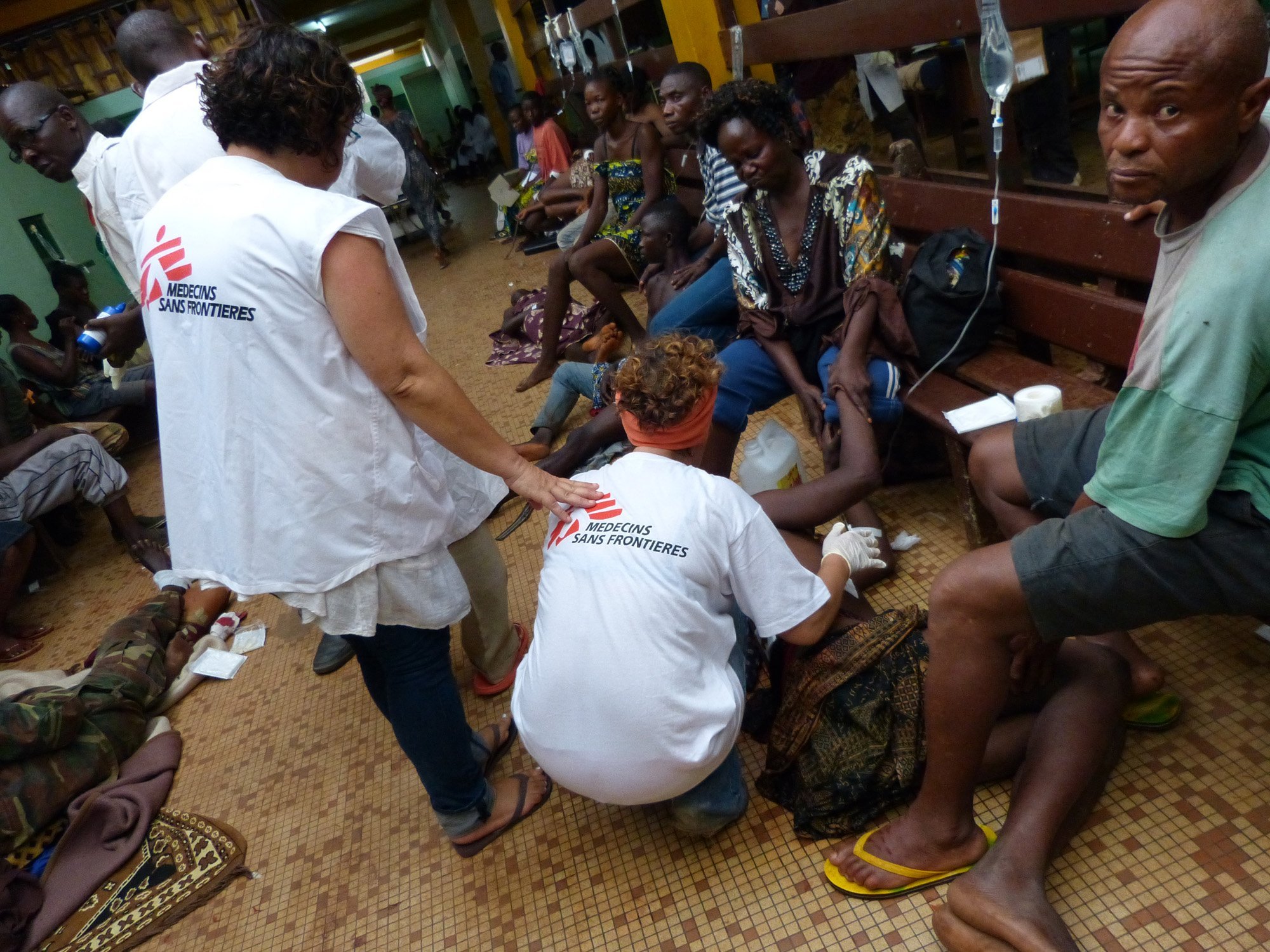Central African Republic: Violence in Bangui Hospitals

Dec 10, 2013
Médecins Sans Frontières (MSF) calls on all parties involved in the current conflict in the CAR to allow the wounded and ill to safely obtain the critical medical care they need. MSF calls for an end to violence against patients, civilians and medical staff working in health care facilities in Bangui and throughout the country.
The wave of violence that began in Bangui on December 5 also affects health care facilities in the capital of the Central African Republic. Last Thursday (5 December), staff and patients at Amitié Hospital witnessed summary executions carried out by armed men inside the hospital. “On Thursday, our teams saw a dozen corpses lying in front of the hospital,” says Rosa CRESTANI, MSF emergency coordinator. Hospital staff no longer want to work there because of the insecurity. Several patients remain, but Amitié Hospital is no longer operating. Some members of the hospital staff have gone to support the teams at the community hospital, where some of the wounded were also transferred.
The situation is also very tense there. Patients, our staff and Ministry of Health employees have been threatened and pressured. Our teams have had to step between armed men and patients on several occasions. “We are continuing our work, but this violence inside the community hospital is unacceptable and constitutes a serious violation of international humanitarian law. It has an obvious impact on medical treatment, slowing the delivery of care and leading hospital staff to temporarily leave their posts,” says Thomas CURBILLON, MSF head of mission. “In addition, the violence means that many wounded patients will probably not try to get to medical facilities. Aid deployment as we define it – neutral, impartial and independent – cannot be provided in the face of threats and violence.”
MSF emphasizes that all parties to the conflict in the CAR - in Bangui and throughout the country – must respect civilian populations and medical facilities and must allow the wounded and ill to be treated without discrimination. MSF calls for a ban on any armed presence in health care facilities and a halt to attacks and threats on patients and medical workers, both Central African and expatriate. MSF is an international medical organisation and operates independently of any authority. Our only goal is to meet populations’ medical and humanitarian needs.
MSF Activities in Bangui/as at December 8, 2013
Community Hospital: In the hours following the start of fighting, MSF teams went to the community hospital to provide assistance in treating the influx of wounded patients. Sixteen medical staff are working in the emergency, surgery and hospitalization departments. Approximately 260 wounded patients have been treated since December 5. Most have gunshot, machete and knife wounds. Just over 100 people are currently hospitalized. More than 60 surgeries have been performed. Another surgical team is expected to arrive soon to support the MSF and Ministry of Health teams. A second operating room was opened and seven tents have been set up for the wounded and to increase hospitalization capacity. Red Cross and ICRC teams and families have brought approximately 200 bodies to the hospital morgue.
Castor Maternity Center: 27 hospital beds for treating the slightly wounded (minor surgery) and pregnant women.
For the displaced persons who have gathered at the airport (15,000 people) and in the Don Bosco community center (13,000 people): Medical care for children under 5 and for pregnant women and referral of wounded patients and medical and surgical emergencies to the Castor Maternity Center, the community hospital or a Bangui pediatric facility supported by the NGO, Emergency. MSF has also set up a water supply station and latrines for the 5,000-6,000 displaced persons in the area at Don Bosco.
MSF donated drugs and medical supplies to the Saint Luc clinic, located in the Boy-Rabe displaced persons camp (15,000 people).
MSF Activities in Bossangoa/as at December 8, 2013
Violent fighting over the last two days has left 28 people dead. MSF teams, which include 23 expatriates, worked around-the-clock to meet the medical needs and provide assistance to more than 37,000 people displaced in the area.
Twenty-one patients with bullet wounds and two with machete wounds were treated at the Bossangoa hospital. Surgery was performed on 16 severely wounded patients and approximately 60 patients were hospitalized. Our health and hygiene activities continue, including providing water and installing latrines for the 37,000 displaced persons who have gathered at the city’s cathedral and Liberté School. Simultaneously, MSF launched assistance to 2,000 new displaced persons who have gathered at several sites. Working in cooperation with the International Red Cross, our teams picked up corpses on the outskirts of the city.





Leave a Comment